Ragtime
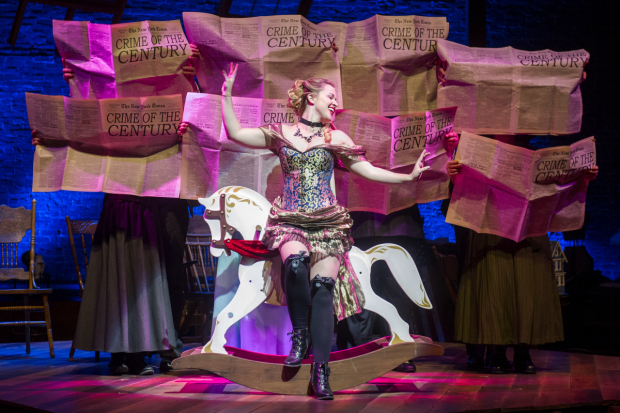
(© Daniel Rader)
"Why is everyone so angry?" asks the prophetic little boy (played by Elliot Trainor) in Ragtime, Lynn Ahrens, Stephen Flaherty, and Terrence McNally's musical adaptation of E.L. Doctorow's novel of political and racial upheaval in the United States just before World War I. In Barrington Stage Company's glorious, timely revival of this modern classic, that question still resonates deeply. Featuring strong performances, Shea Sullivan's exuberant choreography, and the unflinching direction of Joe Calarco, Ragtime is one of the Berkshires' unmissable theater events of the summer.
Set during the hurly-burly of turn-of-the-century New York City — when large numbers of immigrants fled their countries to take refuge in America, and political and social upheaval divided people by race, gender, and religion — a wealthy, white New Rochelle family is jolted from its quiet existence when a black infant is found alive on their property. A perfectly luminous Elizabeth Stanley plays the charitable housewife who takes the child into her care along with the baby's mother, Sarah (the shimmering-voiced Zurin Villanueva). David Harris engagingly plays her status quo-loving husband, who detests disorderly disruptions to his routine, while his more open-minded son (a convincing Hunter Ryan Herdlicka) is ready to take on the establishment in the name of justice.
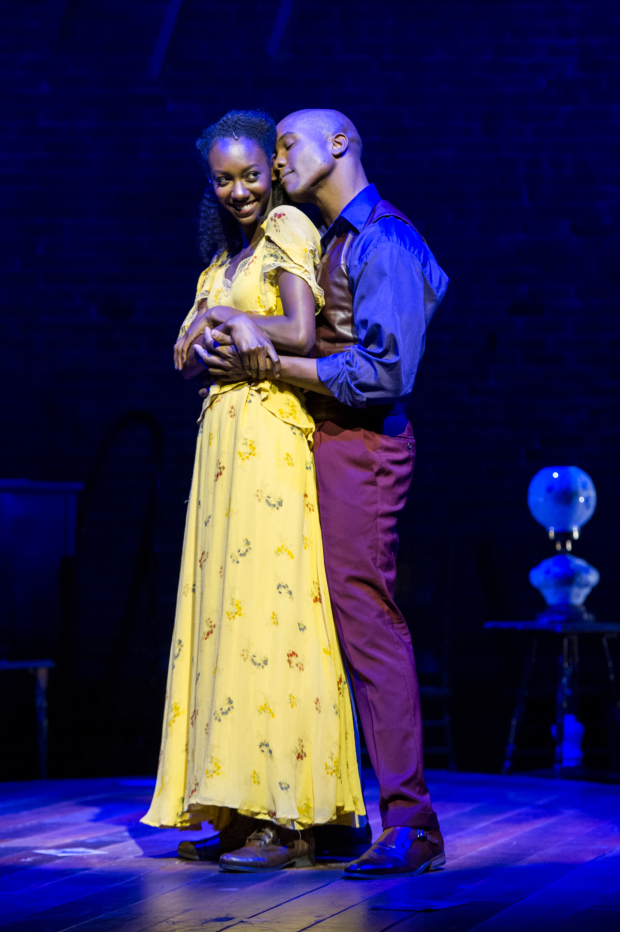
(© Daniel Rader)
At the story's center is the black pianist Coalhouse Walker Jr. (Darnell Abraham in a dynamic portrayal). A firm believer in the American dream, Walker has come to New Rochelle as a prosperous musician intending to finally do right by Sarah and their child. But when he comes into conflict with a racist firehouse chief (played with despicable venom by Matt Gibson), his dream of America gives way to an all-consuming rage, and a violent chain of events is set in motion.
This is only one story in a tapestry of intertwining plotlines and characters that inhabit this richly textured musical. With an enormous cast of 22, Ahrens and Flaherty's exquisite ragtime-infused score is a musical dynamo that raises the rafters with rousing ensemble numbers such as the opening "Ragtime" and "Till We Reach That Day."
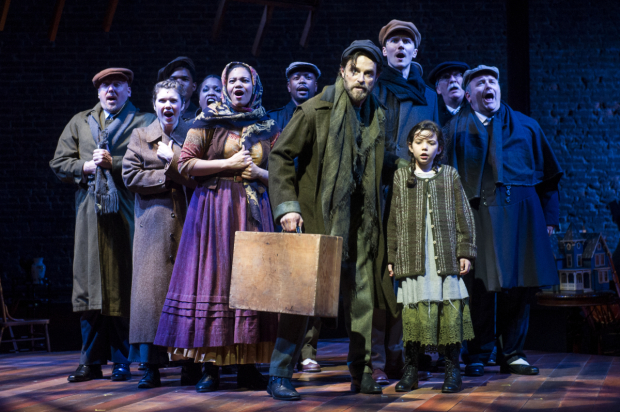
(© Daniel Rader)
The show also shines with individual performances in smaller roles. With ear-piercing panache, Leanne A. Smith plays the flirty chorus girl Evelyn Nesbit, whose husband murdered her former lover in a fit of jealousy ("The Crime of the Century"). J. Anthony Crane plays the Jewish immigrant Tateh with pathos, singing in "Gliding" about his struggle to build a better life for his daughter (delightfully performed by the young Frances Evans). Other real-life characters are energetically portrayed by Anne L. Nathan, as the anarchist Emma Goldman ("The Night That Goldman Spoke at Union Square"), and by Allen Kendall and Eric Jon Mahlum as titans of capitalism J.P. Morgan and Henry Ford ("Success" and "Henry Ford"). Escape artist Harry Houdini (Joe Ventricelli) also makes an appearance in the rollicking "Atlantic City."
There are a lot of subplots for audiences to keep track of in this two-and-a-half-hour show, and some of them get short shrift. Evelyn Nesbit's scandal, for example, serves mostly as a backdrop to the social confusion that resulted as the age began to shift away from conventional sexual mores; the same is true of Emma Goldman and her quest to overturn the capitalist machine. Tateh and his daughter's story, however, focuses on a strong belief in the American dream and serves as a foil to Coalhouse's eventual rejection of the promises of justice and prosperity that he once ardently believed in.
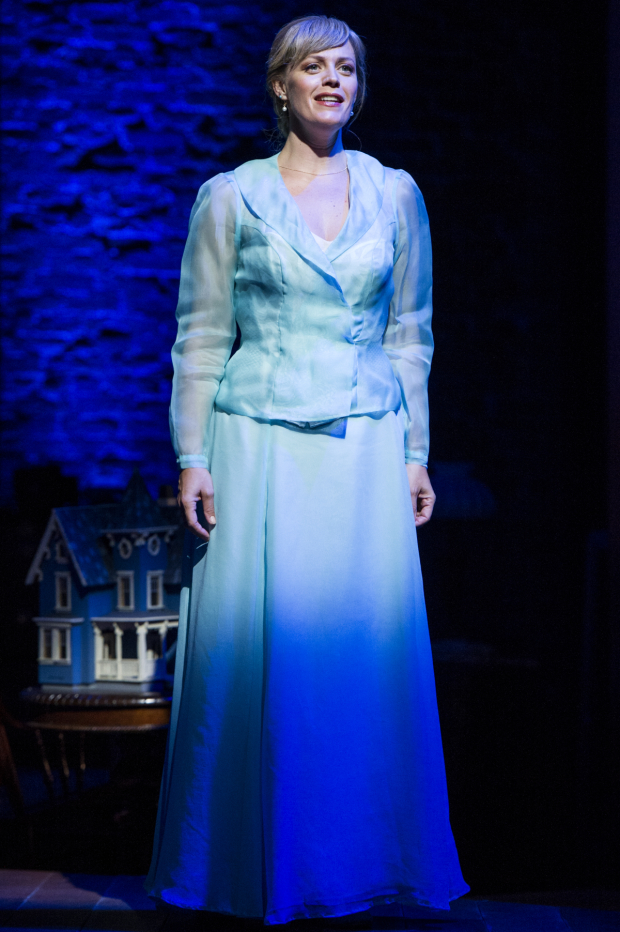
(© Daniel Rader)
Calarco takes a somewhat fluid approach to the show's time period, letting the past and present mingle with each other. At the show's opening, scenic designer Brian Prather presents us with an attic filled with old furniture as four actors enter through a trap door, giving us the impression that they are about to show us photos of the past. Chris Lee's sepia-toned lighting dramatically enhances this scene.
Harmonizing with these elements is Sara Jean Tosetti's period-inspired costume design, which provides enough familiarity in the clothing (Coalhouse's leather vest and red trousers strike a modern note) to remind us that the play's events are reflections not just of the past but of our own time as well.
Along with the big sound of Darren R. Cohen's 10-piece orchestra, the performances elevate this excellent production. Abraham and the ensemble's songs ("His Name Was Coalhouse Walker," "Getting' Ready Rag," and others) are among the show's most joyous; Villanueva's "Your Daddy's Son" is vocally breathtaking; and Stanley's rendition of the showstopping Act 2 number, "Back to Before," is a heartbreaking highlight.
In the end, though, the show asks us to consider the impact of our actions on future generations, represented by three small children locked in an embrace (young Spencer-Mathias Reed makes a moving late-act entrance). Despite the gorgeous score and splendid performances, the tragic events portrayed in Ragtime cause us to leave the theater asking ourselves why, after so many years, America still has such a rage in its heart.
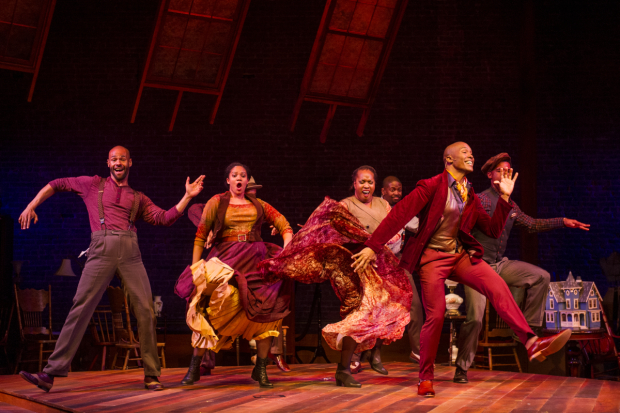
(© Daniel Rader)











